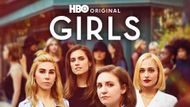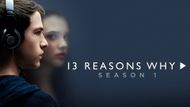Some TV shows have a knack for bringing people together. Others split them apart. This list is all about the seven shows. People either love them or hate them. Every single one stirs up strong opinions, heated arguments, and plenty of noise. Some audiences call them brilliant, while others say they’re offensive, or just plain fake.
Maybe it’s the plot, the cast, or something about the message that hits a nerve. Whatever it is, these shows get people talking. They push boundaries and test patience. Fans defend them like a sacred cause, while critics relentlessly tear them apart. These are the shows that people either worship or despise; there’s no middle ground.
Disclaimer: This article contains the writer's opinion. Reader discretion is advised.
Here is the list of the 7 TV shows that people either worship or can’t stand - there’s no in-between:
7. Westworld (2016)

Westworld is an American sci-fi TV show with a Western twist, created by Jonathan Nolan and Lisa Joy. It first hit HBO on October 2, 2016. The story centres around a theme park built for wealthy guests, where people pay big money to live out their wildest fantasies. Inside the park, they can do almost anything they want, no consequences, because the hosts, such as lifelike robots, are programmed not to hurt humans. The TV show polarised audiences due to the deliberately convoluted, multilayered storytelling. Westworld is a show made up of interlocking cyphers with details in every corner, pieces that have to be itemised together to form elaborate mysteries.
Fans loved the intellectual depth and the community of viewers working out theories and recaps. Dedicated fans praised the show's intricate narrative framework and cinematography. This TV show demands close attention & philosophical engagement with its themes of consciousness and free will. While some viewers found this rewarding, others felt the opacity crossed the line from intriguing mystery into intentional obfuscation.
6. The Big Bang Theory (2007)

The Big Bang Theory had managed to become both one of the most-watched and one of the most-loathed television shows at the same time. Despite averaging more than 18 million viewers per year since 2012, accusations flew that the show was racist and sexist and just not funny. The TV show was banned in China for promoting nerd culture. Some in the nerd community felt it laughed at nerds, rather than with them, using geek culture as the punchline. Science writers felt that the show was not accurately representative of scientists.
The TV show also received criticism for making its male scientists misogynistic characters whose behaviour toward women was adorkably pathetic and endearing rather than problematic. A controversy rose in 2023 over an offensive line regarding actress Madhuri Dixit from Season 2, with Indian legal action threatened. Those who loved the show enjoyed the character dynamics and found the humour about science appealing.
5. Girls (2012)

Lena Dunham's HBO series Girls gained notoriety for polarising reactions with its protagonist, Hannah Horvath. Critics dubbed Hannah one of the most hated characters on television, coming in second place in a bracket called #ActualWorst behind only Hannibal Lecter. The TV show was criticised for painting Hannah as narcissistic, manipulative, and refusing to change. Those defending it insisted that the show captured authentic struggles of twentysomethings and that her flaws made her realistic.
The TV show found poignant moments in complex interpersonal relationships amidst messiness. The conflation of Hannah and the personal controversies of Dunham herself amplified hate against the character and the show. However, the show has recently seen a resurgence in popularity among Gen Z viewers, who now see it less as a voice for all women and more as a nostalgic time capsule of its era.
4. South Park (1997)

Since its 1997 debut, South Park has polarised audiences with crude humour, taboo subjects, and a willingness to mock any group or belief. The animated TV show has led to controversy from religious organisations, parents, and political groups from all sides for two decades. Conservatives often argue that the show is attacking political correctness, while liberals use its offensive history about marginalised communities as an example. This makes the show's legacy complicated simply due to cultural shifts.
Created by Trey Parker and Matt Stone, the TV show was once hailed for equalising mockery in the late 90s and early 2000s. In the post-Trump era, however, its "nothing is off limits" approach has become more contentious as conversations around comedy have shifted toward equity rather than equality. Despite accumulating five Emmy Awards and a Peabody, the show remains divisive, ranging from fearless commentary to outdated irrelevance.
3. 13 Reasons Why (2017)

When Netflix released 13 Reasons Why in 2017, the show ignited excitement among the viewers. The TV show follows Hannah Baker, a high schooler who dies by suicide and leaves behind a set of tapes spelling out exactly why. Right from the start, suicide prevention groups and advocates sounded the alarm. Dan Reidenberg from Suicide Awareness Voices of Education put it bluntly that he worried teens would see themselves in Hannah and that the show could actually lead to more suicides.
Plenty of people slammed the TV show for making suicide look almost like an act of revenge or something dramatic, not a tragedy. The infamous two-minute suicide scene set off so much outrage that Netflix eventually cut it. There were other grievances from mental health practitioners. They said the show did not talk much about depression. It also ignored mental illness and showed adults as clueless or not helpful. Despite all the controversy, many viewers continued to stand by the show. To them, 13 Reasons Why felt raw and real; it didn’t flinch from portraying the darker sides of teenage life, and that authenticity resonated deeply.
2. Euphoria (2019)

In 2019, HBO's Euphoria burst onto screens with its very first controversial episode starring Zendaya. The TV show follows the high-schoolers through addiction, mental illness, sexual assault, and violence depicted through extremely graphic content. One cast member departed midway through the shoot because he was uncomfortable with the subject matter. Creator Sam Levinson made it a point to underline the controversy of the show, saying,
"There are going to be parents who are going to be totally F----ing freaked out."
The TV show has been lauded for its raw honesty in many regards, particularly in shots of artistic cinematography that show the devastating toll of substance use disorder. Critics and organisations such as DARE have attacked the series for its reported glorification of drug use and destructive behaviours. The TV show has raised debates over whether these graphic depictions could normalise or even encourage risky behaviour among viewers.
1. Emily in Paris (2020)

Emily in Paris has been one of the most polarising shows on Netflix since it first premiered in 2020. The show was created by Darren Star. The plot of this TV show tells the story of Emily Cooper, a young American who moves to Paris to work for a French fashion company. The show's escapism, glamorous styling, and romance have made it a favourite among its fans. However, critics and haters are gunning for blood. The French were especially angry about the show. They said it showed Paris like a cartoon and used old stereotypes about French culture & women.
Harper's Bazaar France said there are problems on every level, criticising the clichéd characters and how the show tends to build a completely unrealistic world of fashion. The TV show has equally received criticism for product placement, which GQ described as "one giant billboard." All the backlash aside, the new season topped Netflix charts across France and the US with nearly 20 million views around the world within a week of its release, undisputed proof of divisive appeal.
Follow Soap Central for upcoming updates!
